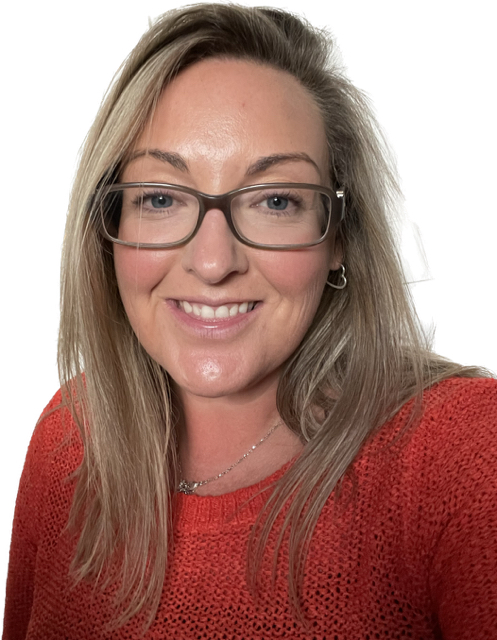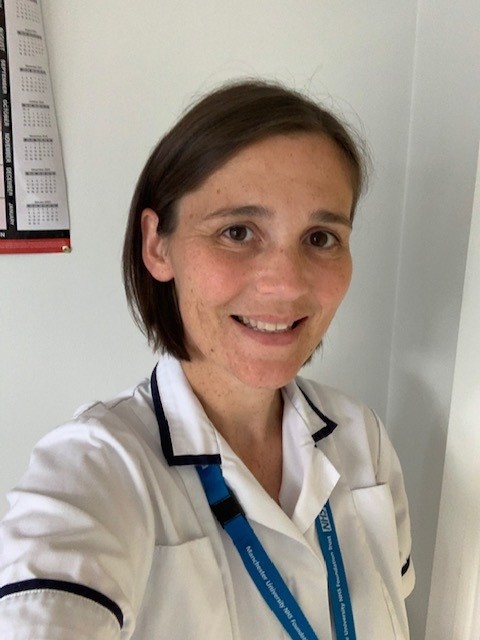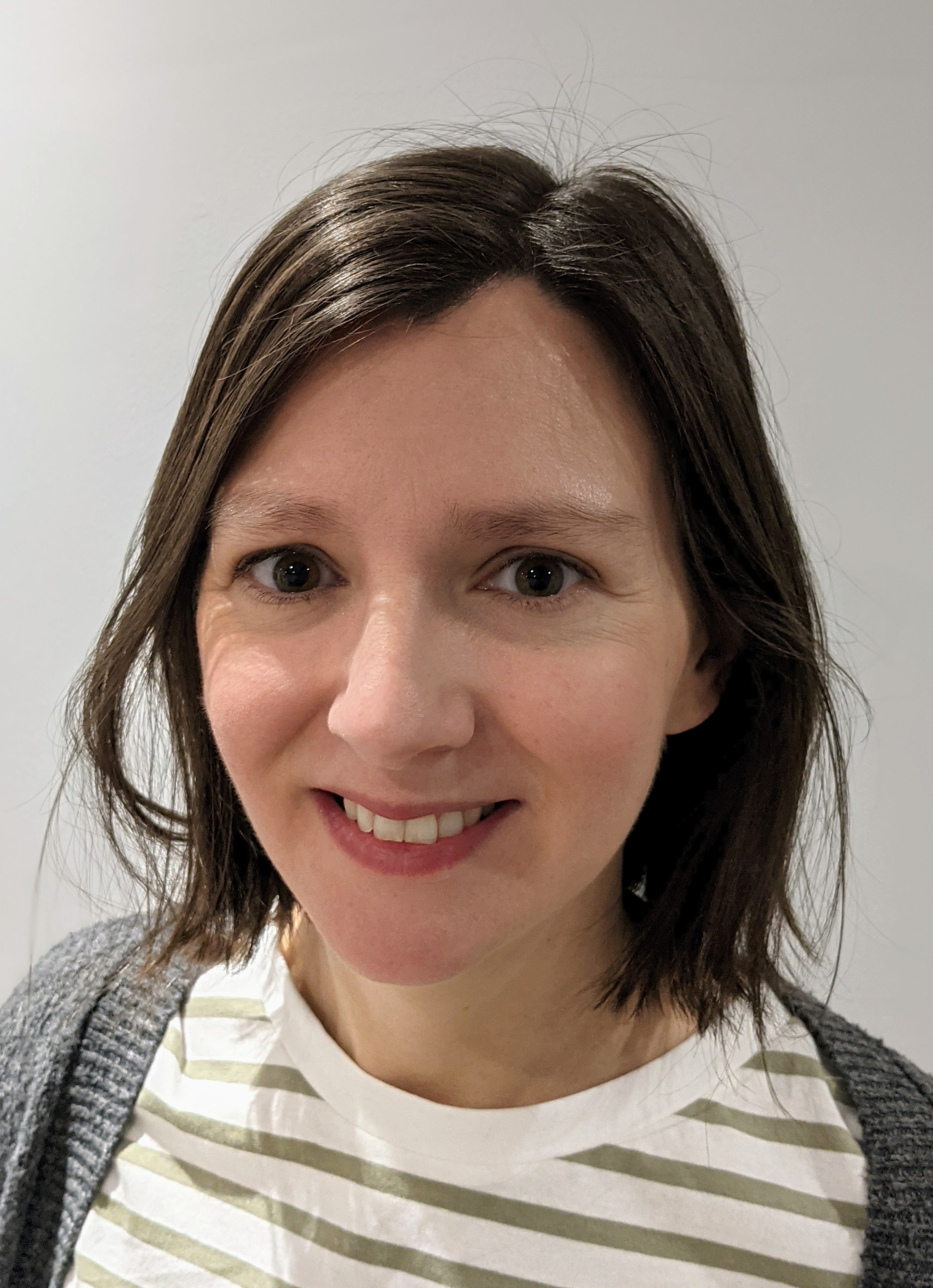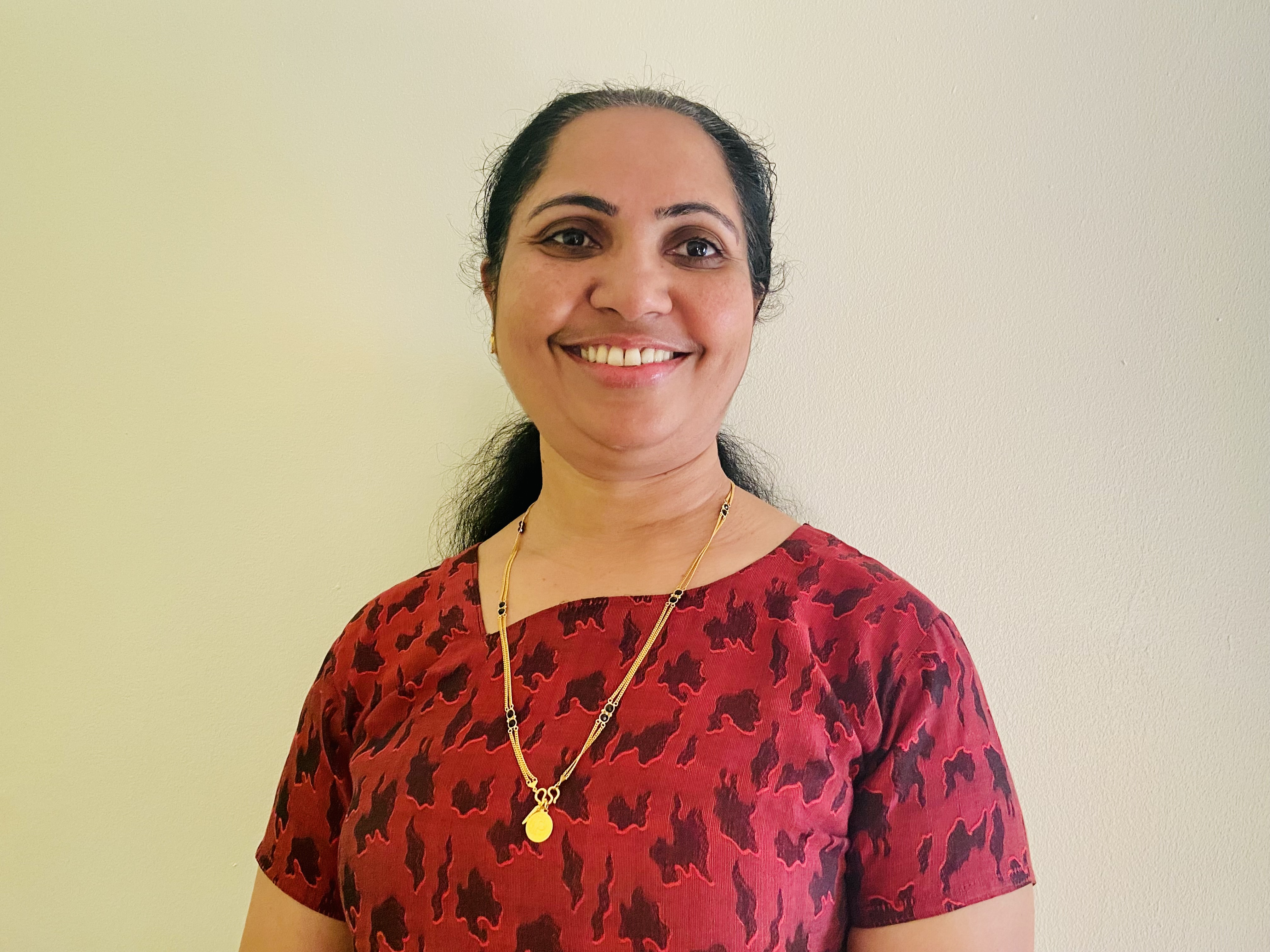Meet our 2022/23 Pre-doctoral Fellowship award holders

Andrea Roberts
Advanced Clinical Practitioner - Nursing
Manchester University Hospitals NHS Foundation Trust
"The primary focus of my research and PhD proposal is admission avoidance"
- More info about Andrea and her research
What is your current role?
Advanced Clinical Practitioner – Nursing
I have a diverse background working in Emergency Medicine and my current role in an ACP led community urgent response team. The ethos of the team is to prevent hospital admission, by assessing and treating patients in their usual residence, where appropriate.
Who are your Pre-doc supervisors?
- Dr William Whittaker
- Dr Fay Bradley
- Dr Sarah Ramsey
What is your field of research?
The primary focus of my research and PhD proposal is admission avoidance.
How are you currently involved in research in your job role?
Service improvement with long term sustainability is a key focus of my role, recently spearheading a transformation project to facilitate early discharge from ED. I am now involved in expanded this project into a hospital at home service. My objectives are to explore the impact of hospital at home on outcomes pertinent to patient satisfaction and admission avoidance.
Why are you interested in research and this ARC-GM Pre-doctoral fellowship?
I have a keen academic interest in admission avoidance in urgent and primary care. My overall aim is to maintain and advance care standards to achieve a common goal as evidenced by the local and national drivers focused on community compassionate care.
The focus of the ‘Organising Care’ theme is aligned with my research proposal and was the theme of my ARC-GM internship.
The theme seeks to inform effective, efficient, and equitable provision of health and care. These are all elements of focus for the evaluation of the hospital at home service. Furthermore, the theme employs a mixed-methods approach to most projects, which also aligns to my proposed PhD study.
Evaluating the effectiveness of the hospital at home service has the capacity to produce outcomes that can alter the future of primary and secondary care integration. Improving patient pathways, facilitating early discharges for overcrowded ED’s, preventing admission to ED and improving patient satisfaction.
What research training courses/modules are you accessing as part of your Fellowship?
My pre-doctoral fellowship is over a 2-year period. I am currently undertaking the Mary Seacole Programme during this first year with a plan to undertake additional M level research modules during the second.
 Laura McGarrigle
Laura McGarrigle
Clinical Specialist Physiotherapist - Heart and Lung Trasnplantation
Manchester University Hospitals NHS Foundation Trust
"What is the evidence for how frailty is assessed, monitored and modified for patients awaiting lung transplantation?"
- More info about Laura and her research
What is your current job title and current role?
I am a clinical specialist physiotherapist specialising in heart and lung transplantation. I lead a small team of therapists who care for patients from assessment for transplant, throughout their recovery in critical care and rehabilitation as an inpatient, to providing long term follow-up as an outpatient.
Who are your Pre-doc supervisors?
- Professor Chris Todd
- Professor Helen Hurst
- Dr Gill Norman
What is your field of research?
Frailty throughout the lung transplant pathway, in particular how it is assessed and treated before lung transplantation.
How are you currently involved in research in your job role?
Previously I have been involved with service evaluation projects and data collection for case series and retrospective studies.
Why are you interested in research and this ARC-GM Pre-doctoral fellowship?
I am keen to use evidence based treatments in my role, ensuring that our patients are receiving the most appropriate interventions. Working in such a rare specialist field such as transplantation, there is little evidence to inform our practice and I am keen to learn more about how my team can contribute to the evidence base. I had wonderful support from the ARC-GM during my internship and was therefore keen to continue my research learning journey within this supportive environment. I have started to develop my own research ideas and projects and the pre-doctoral fellowship will give me the time, support and structure to continue to learn and produce my own research projects.
What research training courses/modules are you accessing as part of your Fellowship?
Research design and Qualitative Design and Analysis MClin Res modules at The University of Manchester. Good Clinical Practice training.
Research question: What is the evidence for how frailty is assessed, monitored and modified for patients awaiting lung transplantation?
Research summary: During the pre-doctoral period I am planning several projects to help answer my research question
- A systematic review of the effectiveness of interventions to modify physical frailty for lung transplant candidates.
- A UK wide survey of adult lung transplant centres to discover if frailty is being assessed before lung transplantation and if any interventions are used to try and improve it whilst patients are on the waiting list.
 Victoria Whiteley
Victoria Whiteley
Advanced Clinical Practitioner - Ketogenic Diet Therapies
Nothern Care Allliance NHS Foundation Trust
"Is ketogenic diet therapy a cost effective treatment option for children and young people with drug resistant epilepsy?"
- More info about Victoria and her research
What is your current job title and current role?
Advanced Clinical Practitioner in Ketogenic Diet Therapies
Who are your Pre-doc supervisors?
- Dr Sorrel Burden
- Dr Sean Gavan
- Dr Natasha Schoeler
What is your field of research?
Ketogenic diet therapy
How are you currently involved in research in your job role?
- Co-chair of Ketogenic Dietitians Research Network
- Associate research champion for allied health professionals and the childrens hospital.
Why are you interested in research and this ARC-GM Pre-doctoral fellowship?
My clinical role is demanding, but I am deeply committed to pursuing a clinical academic career and have undertaken research in my own time to help realise that ambition. The NIHR ARC-GM pre-doctoral fellowship has enabled me to ensure that a component of my job plan is dedicated to research, which has allowed me to plan my research and develop my PhD proposal.
What research training courses/modules are you accessing as part of your Fellowship?
Aberdeen University - short course in Health Economics
Research question: Is ketogenic diet therapy a cost effective treatment option for children and young people with drug resistant epilepsy?
Research summary: Epilepsy is the most common chronic neurological condition in childhood, affecting 112,000 children and young people in the UK, of which 30% are drug-resistant.Alternative treatment options for children with drug-resistant epilepsy are limited. Ketogenic diet therapy (KDT) is an important management option for drug resistant epilepsy (DRE) in children and adults. They are a group of complex diets that are high in fat and low in carbohydrate, with the aim of inducing the metabolic state of ketosis, which has been shown to be beneficial in reducing seizures with a relative risk of 3.16 of achieving seizure freedom, and 5.80 of ≥50% seizure reduction in children compared to no change in treatment. In 2021, the NICE guidelines were reviewed and NICE evaluated the cost-effectiveness of KDT and highlighted that there is a significant gap in health economic research, with no relevant cost or cost effectiveness data for the UK. A research recommendation was made by NICE to determine ‘What is the short-term and long-term clinical and cost-effectiveness of ketogenic diets in adults and children with drug-resistant epilepsy.'
With a view to addressing this research recommendation and the absence of data, I plan to complete a preliminary project to estimating the cost of implementing KDT as part of my fellowship. The next step will then be to complete a clinical and cost-effectiveness analysis of KDT compared to care as usual as a PhD.
 Susy Pramod
Susy Pramod
Senior Tissue Viability Nurse
The Christie NHS NHS Foundation Trust
"Management of malignant fungating wounds"
- More info about Susy and her research interests
Who are your Pre-doc supervisors?
- Professor Jo Dumville
- Dr Gillian Norman
- Dr Jaqcui Stringer
What is your field of research?
Management of malignant fungating wounds
How are you currently involved in research in your job role?
I evaluate various dressings to determine their effectiveness in managing oncology wounds and preventing pressure ulcers. The evaluation of the products led me to publish articles on the prevention of pressure ulcers in cancer patients. I have also been involved in developing a consensus document for Surgical interventions to treat pressure ulcers.
A placement with the Wounds Research Group at Manchester Biomedical Research Collaboration with eh wounds research group helped me to complete a Cochrane review on reconstructive surgery for pressure ulcers which was published this month.
Why are you interested in research and this ARC-GM Pre-doctoral fellowship?
Wound care is an area where there are often several treatment options and innovations, but often-limited evidence base. I want to develop my methodological skills in applied health research, with application to areas of decision uncertainty in wound care. I am dedicated to developing my career towards a clinical academic role that focuses on evidence-based wound care in oncology
What research training courses/modules are you accessing as part of your Fellowship?
In my Fellowship, I am doing research design and qualitative research analysis. I have already completed modules in quantitative research and critical appraisal, so this will earn me a PG certification in clinical research.
 Sophie Chalmers
Sophie Chalmers
Respiratory Speach and Language Therapist
Manchester University Hospitals NHS Foundation Trust
"What is the role of laryngeal hypersensitivity in swallowing dysfunction?"
- More info on Sophie and her research
What is your current job title and current role?
Respiratory Speech & Language Therapist in the Manchester Airways Service
Who are your Pre-doc supervisors?
- Prof. Jo Patterson
- Dr Sue Greenhalgh
- Dr Amy Mathieson
What is your field of research?
Upper airway dysfunction in swallowing difficulties
How are you currently involved in research in your job role?
I am actively involved in national research projects and in building research capacity through mentorship of other early stage career researchers. I am also involved at a local level in developing research knowledge and skills.
Why are you interested in research and this ARC-GM Pre-doctoral fellowship?
The pre-doctoral fellowship has provided me with the time to expand some of my existing research skills and focus these skills to be able to propose a well thought out research question and methods. This has been developed with the support of supervision and mentorship, through a range of research activities, such as a scoping review, a PPIE engagement event, and a masters module in qualitative research design.
What research training courses/modules are you accessing as part of your Fellowship?
Masters module in qualitative research and design at the University of Manchester
Research Question
What is the role of laryngeal hypersensitivity in swallowing dysfunction?
Research Summary
Through discussion with clinicians, researchers, and patients, it has come to light that awareness and understanding of laryngeal hypersensitivity in swallowing dysfunction has had little attention in the literature, leading to variability in patient experience of care and outcomes.
My research question has significantly changed since starting the pre-doctoral fellowship as I began speaking with key stakeholders about their perceived research priorities and areas in need of further exploration and development.
The first step of my research is a scoping review looking into the terminology and assessment tools we use when managing laryngeal hypersensitivity with concurrent swallowing dysfunction. A PPIE event will help shape the key research priorities in this field for future research planning,